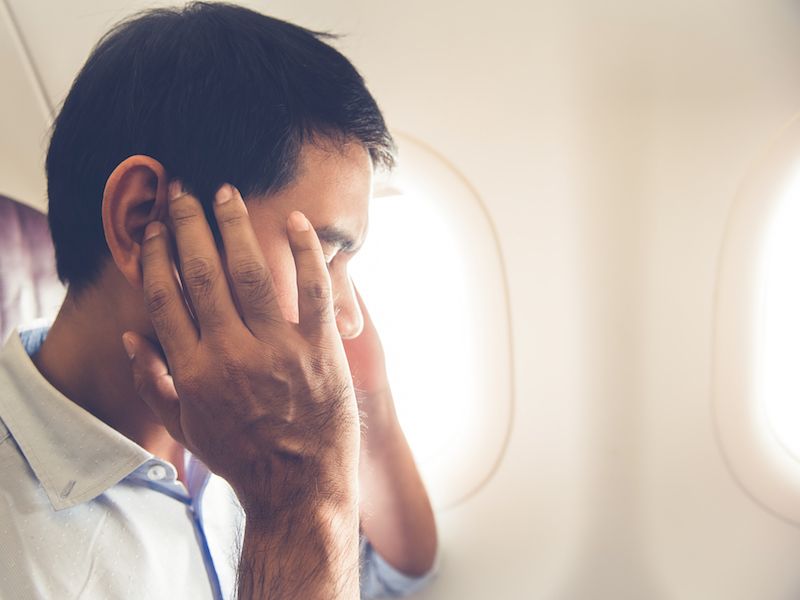
With tinnitus, it’s common to have good and bad days but why? Over 45 million Americans suffer from ringing in their ears due to a condition called tinnitus, according to the American Tinnitus Association, and 90 percent of them also suffer from some degree of hearing loss.
None of that explains why the ringing is invasive some days and virtually non-existent on others. Some typical triggers might explain it but it’s still unclear why this happens.
What Is Tinnitus?
Tinnitus describes a condition where the patient hears phantom noises such as:
- Clicking
- Buzzing
- Ringing
- Hissing
- Roaring
You hear it, the person sitting next to you can’t, which is one thing that makes tinnitus so disturbing. Also, the pitch and volume can vary. It might be gone one day and the next it’s a roar.
Exactly What is The Cause of Tinnitus?
Changes in a person’s hearing are the most common cause. The cause of these changes could be:
- Ear bone changes
- Earwax build up
- Aging
- Noise trauma
There are other potential causes, also, like:
- TMJ problems
- Meniere’s disease
- Acoustic neuroma
- Tumor in the neck or head
- Atherosclerosis
- Head trauma
- High blood pressure
- A problem with the carotid artery or jugular vein
For a small percentage of people, there is no obvious reason for them to have tinnitus.
Consult your doctor to have your ears examined if you suddenly notice the symptoms of tinnitus. The problem may be something treatable or even a symptom of a life-threatening condition like high blood pressure or heart disease. A side effect of a new medication could also be the cause.
For some reason the ringing gets worse on some days.
It’s a bit of a medical mystery as to why some days are worse than others for those who have tinnitus. And there may be many reasons depending on the person. There are known triggers that might explain it, though.
Loud Events
Loud events such as concerts, club music, and fireworks are enough to irritate your tinnitus. The number one way to go is to put in ear protection if you expect to be exposed to a lot of noise. They make earplugs, for instance, that will allow you to enjoy music at a live performance but reduce the effect it has on your hearing.
You can also keep away from the source of the sound. When you go to a fireworks display don’t sit up front and avoid the front row at a live performance. Combined with hearing protection, this could diminish the impact.
Loud Noises at Home
Stuff at home can be just as aggravating as a loud concert. For example, mowing the lawn is enough to trigger tinnitus. Consider other things you do at home that could be an issue:
- Woodworking – Power tools are loud enough to be a problem.
- Wearing headphones – The function of headphones is to raise the volume of your audio which could be irritating your tinnitus so it may be time to lose those earbuds.
- Laundry – For instance, if you fold clothes while the washer is running.
If there are activities you can’t or aren’t willing to avoid such as woodworking, wear hearing protection.
Noises at Work
Loud noises on the job are just as harmful as any other. It’s especially crucial to use ear protection if you work in construction or are around machines. Talk to your manager about your hearing health; they will probably provide the hearing protection you need. Let your ears rest during your off time.
Air Pressure Changes
When most people go on a plane they experience ear popping. The change in air pressure plus the noise from the plane engines can result in an increase in tinnitus. If you are traveling, take some gum with you to help neutralize the air pressure and consider ear protection.
Changes in air pressure happen everywhere not just on a plane. If you have sinus problems, for example, think about taking medication to help alleviate them.
Medication
Medication might also be the issue. Some drugs are ototoxic, meaning they have an impact on the ears. Included on this list are these common medications:
- Over-the-counter pain relievers
- Antibiotics
- Diuretics
If you’re experiencing an intensifying of your tinnitus after you begin taking a new prescription, consult your doctor. It might be feasible to switch to something else.
For some people tinnitus is not just irritating it’s debilitating. The first step is to figure out what’s causing it and then look at ways to keep it under control from day to day.
